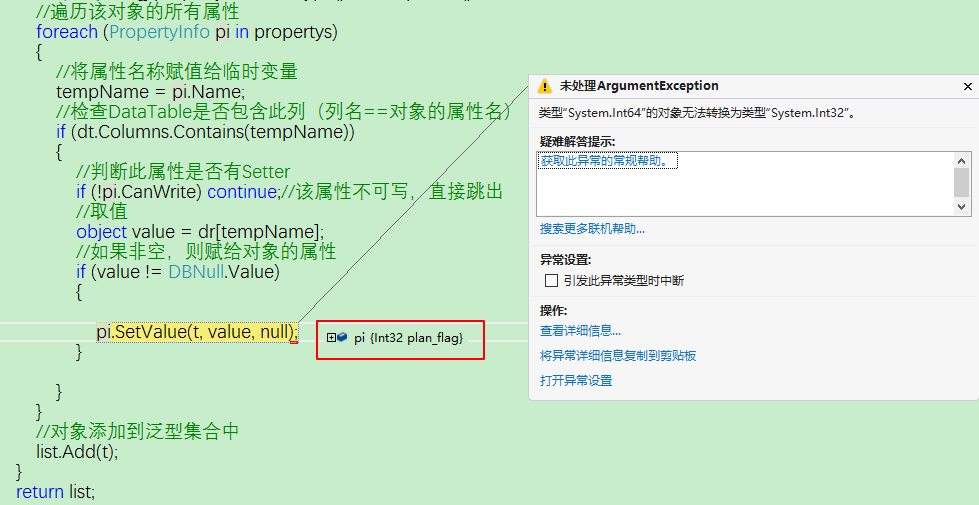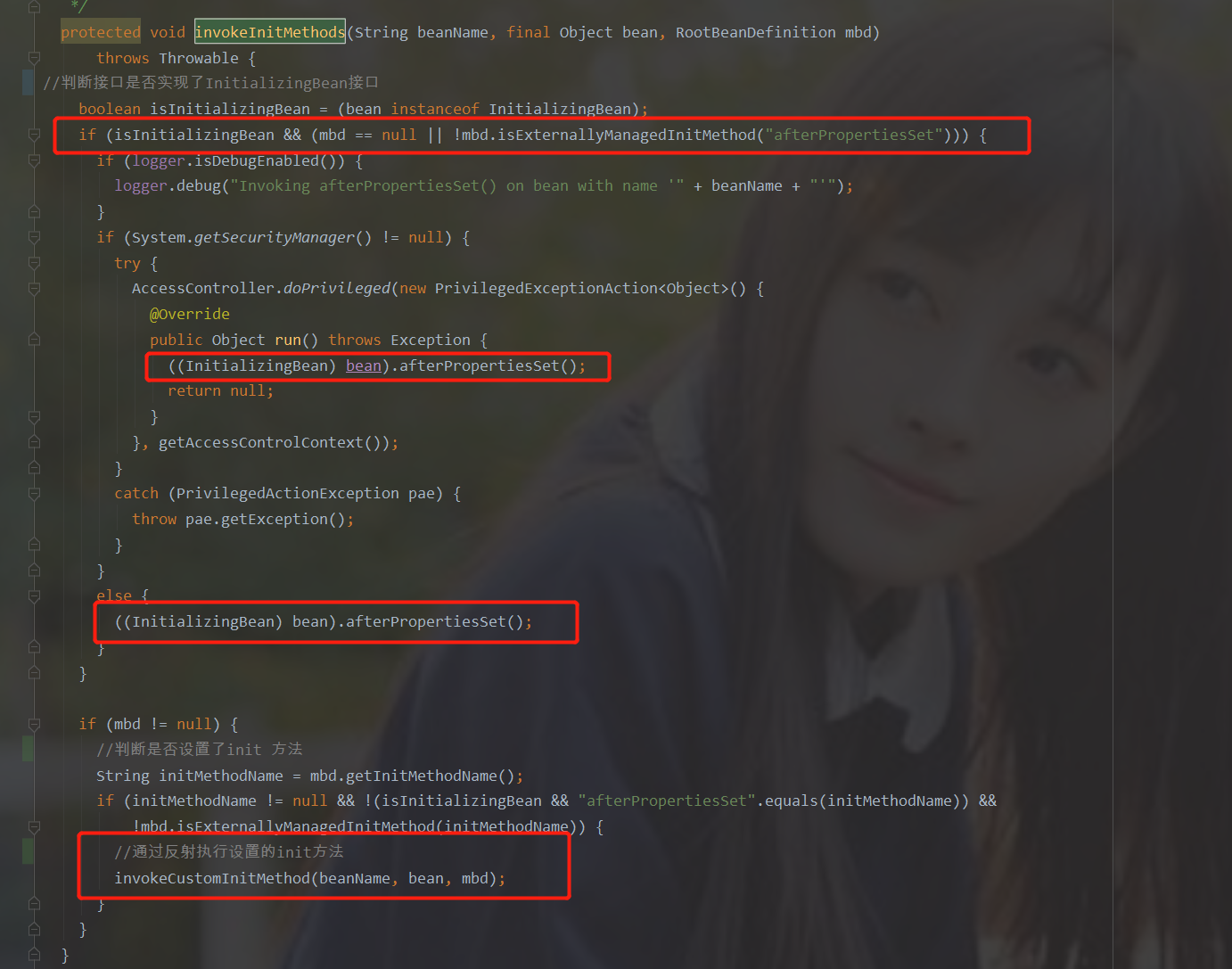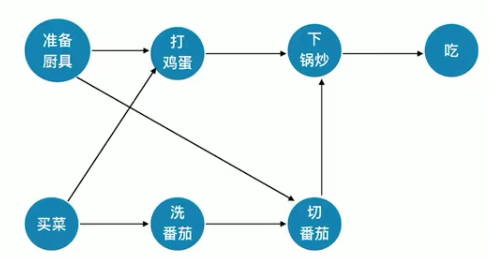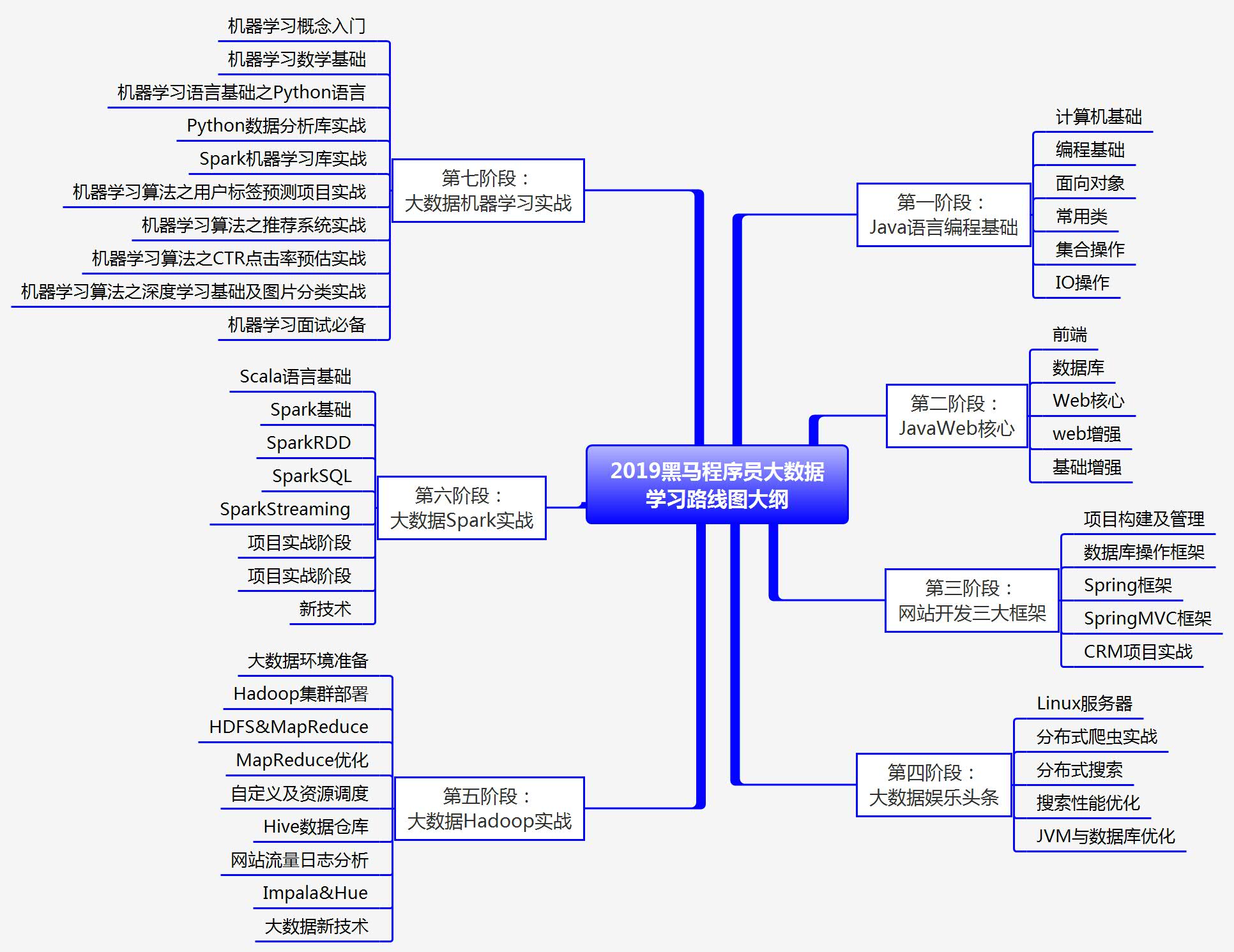一、List/IEnumerable转换到DataTable/DataView
方法一:
| 1 2 3 4 5 6 7 8 9 10 11 12 13 14 15 16 17 18 19 20 21 22 23 24 25 26 27 28 29 30 31 32 33 34 35 36 37 38 39 40 41 42 43 44 45 46 47 48 49 50 51 52 53 54 55 56 57 58 59 | /// <summary>
/// Convert a List{T} to a DataTable.
/// </summary>
private DataTable ToDataTable<T>(List<T> items)
{
var tb = new DataTable(typeof (T).Name);
PropertyInfo[] props = typeof (T).GetProperties(BindingFlags.Public | BindingFlags.Instance);
foreach (PropertyInfo prop in props)
{
Type t = GetCoreType(prop.PropertyType);
tb.Columns.Add(prop.Name, t);
}
foreach (T item in items)
{
var values = new object[props.Length];
for (int i = 0; i < props.Length; i++)
{
values[i] = props[i].GetValue(item, null);
}
tb.Rows.Add(values);
}
return tb;
}
/// <summary>
/// Determine of specified type is nullable
/// </summary>
public static bool IsNullable(Type t)
{
return !t.IsValueType || (t.IsGenericType && t.GetGenericTypeDefinition() == typeof(Nullable<>));
}
/// <summary>
/// Return underlying type if type is Nullable otherwise return the type
/// </summary>
public static Type GetCoreType(Type t)
{
if (t != null && IsNullable(t))
{
if (!t.IsValueType)
{
return t;
}
else
{
return Nullable.GetUnderlyingType(t);
}
}
else
{
return t;
}
}
|
方法二:
| 1 2 3 4 5 6 7 8 9 10 11 12 13 14 15 16 17 18 19 20 21 | public static DataTable ToDataTable<T>(IEnumerable<T> collection)
{
var props = typeof(T).GetProperties();
var dt = new DataTable();
dt.Columns.AddRange(props.Select(p => new DataColumn(p.Name, p.PropertyType)).ToArray());
if (collection.Count() > 0)
{
for (int i = 0; i < collection.Count(); i++)
{
ArrayList tempList = new ArrayList();
foreach (PropertyInfo pi in props)
{
object obj = pi.GetValue(collection.ElementAt(i), null);
tempList.Add(obj);
}
object[] array = tempList.ToArray();
dt.LoadDataRow(array, true);
}
}
return dt;
}
|
二、DataTable转换到List
方法一:
| 1 2 3 4 5 6 7 8 9 10 11 12 13 14 15 16 17 18 19 20 21 22 23 24 25 26 27 28 29 30 31 32 33 34 35 36 37 38 39 40 41 42 43 44 45 46 47 48 49 50 51 52 53 54 55 56 57 58 59 | public static IList<T> ConvertTo<T>(DataTable table)
{
if (table == null)
{
return null;
}
List<DataRow> rows = new List<DataRow>();
foreach (DataRow row in table.Rows)
{
rows.Add(row);
}
return ConvertTo<T>(rows);
}
public static IList<T> ConvertTo<T>(IList<DataRow> rows)
{
IList<T> list = null;
if (rows != null)
{
list = new List<T>();
foreach (DataRow row in rows)
{
T item = CreateItem<T>(row);
list.Add(item);
}
}
return list;
}
public static T CreateItem<T>(DataRow row)
{
T obj = default(T);
if (row != null)
{
obj = Activator.CreateInstance<T>();
foreach (DataColumn column in row.Table.Columns)
{
PropertyInfo prop = obj.GetType().GetProperty(column.ColumnName);
try
{
object value = row[column.ColumnName];
prop.SetValue(obj, value, null);
}
catch
{ //You can log something here
//throw;
}
}
}
return obj;
}
|
方法二:
把查询结果以DataTable返回很方便,但是在检索数据时又很麻烦,没有模型类型检索方便。
所以很多人都是按照以下方式做的:
| 1 2 3 4 | // 获得查询结果
DataTable dt = DbHelper.ExecuteDataTable(…);
// 把DataTable转换为IList<UserInfo>
IList<UserInfo> users = ConvertToUserInfo(dt);
|
问题:如果此系统有几十上百个模型,那不是每个模型中都要写个把DataTable转换为此模型的方法吗?
解决:能不能写个通用类,可以把DataTable转换为任何模型,呵呵,这就需要利用反射和泛型了
| 1 2 3 4 5 6 7 8 9 10 11 12 13 14 15 16 17 18 19 20 21 22 23 24 25 26 27 28 29 30 31 32 33 34 35 36 37 38 39 40 41 42 43 44 45 46 | using System;
using System.Collections.Generic;
using System.Text;
using System.Data;
using System.Reflection;
namespace NCL.Data
{
/// <summary>
/// 实体转换辅助类
/// </summary>
public class ModelConvertHelper<T> where T : new()
{
public static IList<T> ConvertToModel(DataTable dt)
{
// 定义集合
IList<T> ts = new List<T>();
// 获得此模型的类型
Type type = typeof(T);
string tempName = “”;
foreach (DataRow dr in dt.Rows)
{
T t = new T();
// 获得此模型的公共属性
PropertyInfo[] propertys = t.GetType().GetProperties();
foreach (PropertyInfo pi in propertys)
{
tempName = pi.Name; // 检查DataTable是否包含此列
if (dt.Columns.Contains(tempName))
{
// 判断此属性是否有Setter
if (!pi.CanWrite) continue;
object value = dr[tempName];
if (value != DBNull.Value)
pi.SetValue(t, value, null);
}
}
ts.Add(t);
}
return ts;
}
}
}
|
使用方式:
| 1 2 3 4 | // 获得查询结果
DataTable dt = DbHelper.ExecuteDataTable(…);
// 把DataTable转换为IList<UserInfo>
IList<UserInfo> users = ModelConvertHelper<UserInfo>.ConvertToModel(dt);
|
原文地址:https://www.cnblogs.com/shiyh/p/7478241.html
将DataTable转换为List对象遇到问题:类型“System.Int64”的对象无法转换为类型“System.Int32”
2017年09月03日 15:26:45
阅读数:1028
前言:
用三层开发的时候,D层经常会用到把DataTable对象转换为List对象的问题,一般情况下我们都会用到一个TableToList()方法,之前都是照着网上敲得,完了大致看一下就开始用了,也没出什么问题,也就没有仔细研究,这次用这个方法转换的时候遇到了一个异常(如题),出来混迟早要还的,这次让我重新研究了一下这个方法。
方法思路:
简单了解一下TableToList()方法的思路。
- 初始化一个List对象,获取到T所有的属性,
- 初始化一个T对象 遍历所有属性,
- 如果DataTable中含有相应属性的值则为T对象赋值,如果没有对应的列则检查数据模型是否定义有误(属性名与列名比较时不区分大小写)
- 将T对象添加到List对象中
遇到的问题

我也是很奇怪,我的plan_flag字段在前边明明传进去的就是int32的,到这里怎么成了int64不能转换成int32位了。
根据之前的思路和异常出现的地方,问题出在给对象的属性赋值这步。
因为转换时在DataTable里某个字段类型是Int32会有问题,报异常,所以我们可在赋值的时候加一个判断:
//加一重if判断,如果属性值是int32类型的,就进行一次强制转换if(pi.GetMethod.ReturnParameter.ParameterType.Name == "Int32"){value = Convert.ToInt32(value);}pi.SetValue(t, value, null);
完整的方法
/// <summary> /// DataTable转换为List /// </summary> /// <typeparam name="T">实体对象</typeparam> /// <param name="dt">datatable表</param> /// <returns>返回list集合</returns> public List<T> TableToList<T>(DataTable dt) where T : new() { //定义集合 List<T> list = new List<T>(); //获得此模型的类型 Type type = typeof(T); //定义一个临时变量 string tempName = string.Empty; //遍历Datatable中所有的数据行 foreach (DataRow dr in dt.Rows) { T t = new T(); //获得此模型的公共属性 PropertyInfo[] propertys = t.GetType().GetProperties(); //遍历该对象的所有属性 foreach (PropertyInfo pi in propertys) { //将属性名称赋值给临时变量 tempName = pi.Name; //检查DataTable是否包含此列(列名==对象的属性名) if (dt.Columns.Contains(tempName)) { //判断此属性是否有Setter if (!pi.CanWrite) continue;//该属性不可写,直接跳出 //取值 object value = dr[tempName]; //如果非空,则赋给对象的属性 if (value != DBNull.Value) { //加一重if判断,如果属性值是int32类型的,就进行一次强制转换 if(pi.GetMethod.ReturnParameter .ParameterType.Name=="Int32") { value = Convert.ToInt32(value); } pi.SetValue(t, value, null); } } } //对象添加到泛型集合中 list.Add(t); } return list; }
总结
还是多一点了解比较好,知其然也要之前所以然,要不然出问题的时候找不到问题原因,更找不到解决方法。




































还没有评论,来说两句吧...